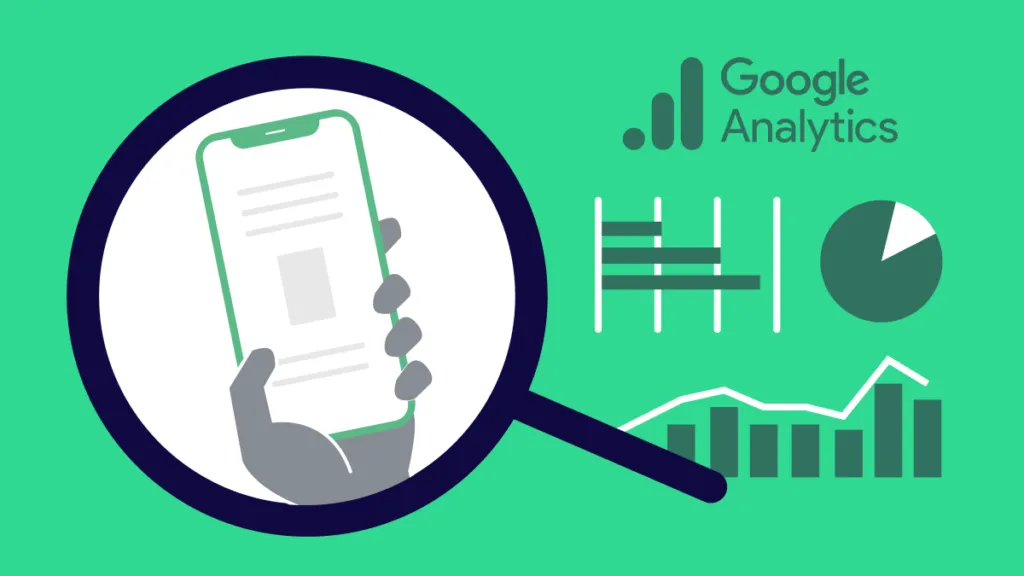Market research, an indispensable part of the decision-making process in enterprises, has entered a new era with the continuous development and application of AI technology. The evolution of market research from simple surveys to data-driven and intelligent decision-making not only witnesses technological progress but also reflects the increasingly fierce market competition. This article will delve into how AI is applied in market research from data to decision-making, and its impact on enterprises and markets.

What is Market Research?
Definition of Market Research
Market research is a systematic method that collects, analyzes, and interprets data and information related to markets, products, and services to support businesses in formulating marketing strategies and making decisions. This work involves not only studying consumer behavior and market trends but also gaining an in-depth understanding of competitive environments, product positioning, brand strategies, and more. The process involves various methods and technologies, including qualitative and quantitative research, as well as the application of various data collection and analysis tools.
The essence of market research lies in understanding the market and consumers deeply, grasping the pulse of market changes, identifying market opportunities and challenges, and formulating corresponding marketing strategies. In the context of digitization and intelligence, market research is evolving toward data-driven and intelligent directions, with AI technology becoming one of its key driving forces.
Evolution of Market Research
With the development of technology and changes in the market, traditional market research methods are increasingly being integrated into digital and intelligent frameworks. From past paper surveys to present data mining and machine learning, market research methods have undergone revolutionary changes. Although traditional methods still have their necessity, with the maturity and popularity of AI technology, market research is undergoing a revolution.
Traditional Methods vs. Modern Trends
The history of market research can be traced back to the early twentieth century when research primarily relied on qualitative data and manual analysis, such as focus group discussions and individual in-depth interviews. Although these methods could provide insights to a certain extent, they were limited by data volume and processing efficiency, often failing to meet the demands of rapid decision-making in enterprises. With the development of information technology and the arrival of the data explosion, modern market research is moving toward data-driven and intelligent directions.
Rise and Impact of AI Technology
The rise of AI technology has brought new possibilities to market research. Through techniques like machine learning, data mining, and natural language processing, AI can extract valuable information from massive data, uncover hidden patterns and trends, and provide deeper and more accurate support for market decisions. Compared to traditional manual analysis, AI has higher efficiency and accuracy, significantly enhancing the level and effectiveness of market research.

In the digital and intelligent era, AI has become an important tool and driving force for market research. By combining AI technology with marketing expertise, enterprises can better understand the market and consumers, seize market opportunities, and thereby formulate more forward-looking and beneficial marketing strategies.
You can explore this transformation with this AI slide presentation, which highlights the role of artificial intelligence in reshaping market research strategies and methodologies.
Significance and Roles
Market research plays a crucial role in today's business environment. It not only helps businesses understand the market and consumers but also serves as a cornerstone to support businesses in formulating marketing strategies, optimizing product design, and enhancing brand competitiveness.
Significance of Market Research
- Insight into Market Demand: Market research helps companies gain an in-depth understanding of market demand and trends, grasp consumer preferences and behaviors, and thus better meet market needs.
- Discover Opportunities and Challenges: Through market research, companies can discover opportunities and challenges in the market, adjust strategies promptly, and seize opportunities.
- Optimize Product Design: Market research can provide important references for product design, helping companies understand consumer needs and preferences, and thus design products that better meet market demand.
- Formulate Marketing Strategies: Market research provides data support and market insights for companies to formulate marketing strategies, helping companies better position the market, select target customers, and develop promotion plans.
- Evaluate Competitive Environment: Through market research, companies can comprehensively understand the strengths and weaknesses of competitors, providing references for their competitive strategy formulation.
Roles of Market Research
- Decision Support: Market research provides important data support and market insights for enterprise decision-making, helping companies formulate more forward-looking and effective decisions.
- Risk Reduction: Through market research, companies can better understand the market and consumers, reducing risks in product development and marketing processes.
- Enhance Competitiveness: Targeted market research can help companies better understand the market and competitive environment, thereby enhancing their competitiveness.
- Innovation Drive: Market research can provide important guidance and support for enterprise innovation, helping companies develop more competitive products and services in the market.
- Customer Satisfaction: Through market research, companies can understand customer needs and satisfaction, adjust products and services timely, and improve customer satisfaction and loyalty.
In this new era, market research is no longer limited to simple data collection and analysis but relies more on advanced technology and tools to help businesses better understand the market and consumers. In the following articles, we will explore the application of artificial intelligence in market research and how to choose and use suitable tools to support your business decisions.
Application of AI Tools in Market Research
The introduction of AI market research tools has brought new possibilities and opportunities to market research. Compared to traditional manual analysis and data processing, AI tools have higher efficiency and accuracy, and better coping with information explosion and changing market environments.
Introduction to AI Market Research Tools
Comparison Between Traditional and Modern Tools
Traditional market research tools mainly include questionnaire surveys, focus group discussions, and individual in-depth interviews. These methods often require a large amount of manpower and time costs and are susceptible to sample selection bias and subjective factors of survey subjects. In contrast, modern AI market research tools can utilize big data and machine learning technologies to extract valuable information from massive data, and uncover hidden patterns and trends, thus providing deeper and more accurate insights for market research.
Advantages and Characteristics of Modern Tools
The advantages of modern tools lie in their efficiency and intelligence. Compared to traditional tools, modern tools can collect and analyze data more quickly, and reduce human errors and subjective biases, thus improving the efficiency and accuracy of market research. Moreover, modern tools can utilize machine learning and natural language processing technologies to conduct in-depth data mining and analysis, discover hidden business value, and provide more powerful support for enterprise decisions.

The emergence of AI market research tools not only improves the efficiency and accuracy of market research but also provides more market insights and business opportunities for enterprises. With the continuous development of AI technology, it is believed that AI market research tools will play an increasingly important role in the future, becoming an important auxiliary means for enterprise decision-making.
Characteristics and Functions of AI Tools
Data Analysis and Predictive Capabilities
Modern AI market research tools have powerful data analysis and predictive capabilities, able to extract valuable information and trends from massive data. Through machine learning algorithms, these tools can identify and analyze consumer behavior patterns, predict market trends, and provide more accurate data support for enterprise decisions.
Automation and Efficiency Improvement
Compared to traditional manual analysis, modern AI market research tools can automate data processing, greatly improving the efficiency of research. They can automatically collect, clean, and analyze data, reducing human errors and processing time, and making market research faster and more accurate.
Personalized Recommendations and Customization
Based on machine learning and data mining technologies, modern AI market research tools can provide personalized market insights and recommendations for enterprises. They can customize product and service recommendations based on consumer behavior and preferences, improving marketing effectiveness and customer satisfaction.
Real-time Monitoring and Feedback
Modern AI market research tools have the capability of real-time monitoring and feedback, able to timely discover market changes and consumer feedback. Through real-time data analysis, companies can adjust marketing strategies promptly, seize market opportunities, and improve market competitiveness.
Visual Analysis and Report Generation
These tools usually have powerful visual analysis and report generation functions, able to transform complex data into intuitive charts and reports, helping decision-makers better understand market situations and trends, and make wiser decisions.
Cross-channel Integration and Multi-dimensional Analysis
Modern AI market research tools can span multiple channels, integrate various data sources, and conduct multi-dimensional analysis. This makes market research more comprehensive and in-depth, allowing companies to understand the market and consumers from multiple perspectives and provide more comprehensive decision support.
Data Security and Privacy Protection
While processing a large amount of sensitive data, modern AI market research tools also focus on data security and privacy protection. They typically adopt advanced encryption technologies and permission management mechanisms to ensure the security and confidentiality of user data, avoiding the risks of data leakage and misuse.
These tools not only conduct data analysis and prediction but also achieve automated data collection and processing, providing timely and accurate support for marketing decision-making. Additionally, functions such as personalized recommendations, real-time monitoring, and visual analysis greatly enhance the level and effectiveness of market research.
Choosing the Right AI Market Research Tools
Best AI Market Research Tools
Choosing the best AI market research tools requires considering multiple factors, including functionality, performance, price, and user experience. Here are some highly acclaimed AI market research tools in the market:
- IBM Watson Analytics: IBM Watson Analytics is a powerful data analysis tool that integrates AI and machine learning technologies, helping companies discover valuable information and trends from massive data. It provides rich analysis capabilities and visualization tools, suitable for various market research scenarios.
- Google Analytics: Google Analytics is a free website analysis tool that helps companies understand key metrics such as website traffic, user behavior, and conversion rates. It uses AI and machine learning technologies to provide in-depth website analysis and market insights, helping companies optimize marketing strategies and improve user experience.

- SAS Visual Analytics: SAS Visual Analytics is a leading visualization analysis tool that integrates advanced data analysis and forecasting capabilities, helping companies discover hidden business opportunities and trends. It supports various data sources and formats, suitable for various scales and types of market research projects.
- Tableau: Tableau is a popular visualization analysis tool that can help companies quickly generate various interactive charts and reports, analyze data in depth, and discover hidden insights. It supports multiple data sources and formats, suitable for various market research and business analysis scenarios.
- Microsoft Power BI: Microsoft Power BI is a powerful business intelligence tool that integrates data analysis, visualization, and report generation capabilities, helping companies quickly achieve data-driven decisions. It supports various data sources and formats, with flexibility and scalability, suitable for various scales and types of market research projects.
- BigSpy: BigSpy is an advertising creative and copy spy tool. It can monitor and track ads from many social channels. You can also use search filters to view specific advertising styles and advertising effects of competitors. By understanding the hottest advertising insights, you can understand the hottest product markets. The social platforms it supports include Facebook, YouTube, X(twitter), Pinterest, Instagram, AdMob, Yahoo, etc.

How to Choose the Best Tool?
When choosing the most suitable AI market research tools, several factors need to be considered. Firstly, assess your own needs and goals, and determine the required functionality and features. Secondly, consider the budget and resources to ensure that the selected tool matches the actual situation. Finally, it's important to conduct testing and trials to understand the actual effectiveness and applicability of the tool.
- Assessing Needs and Goals:Firstly, companies need to clarify their market research needs and goals, including data analysis, predictive capabilities, and visual analysis. Based on these needs and goals, choose the most suitable tool.
- Considering Budget and Resources:Secondly, companies need to consider the budget and resources and choose artificial intelligence market research tools that match their budget and resources. Some tools may have higher prices but powerful functions, while others may have lower prices but relatively simple functions.
- Importance of Testing and Trial Phases:Finally, companies can conduct testing and trials before choosing, to understand the actual effectiveness and user experience of the tool. You can choose some free trial versions or tools with longer trial periods for testing, thus selecting the most suitable tool.
Use Cases and Success Stories
When choosing artificial intelligence market research tools, referring to the use cases and success stories of other companies is also an effective method. You can check relevant cases and stories to understand the application effects and impacts of different tools in different industries and scenarios, thus making a better choice.
Frequently Asked Questions
During the process of applying artificial intelligence to market research, people often have some questions and concerns. We will explore and answer these questions in-depth in the following content to help readers better understand the role and impact of artificial intelligence in market research.
How to ensure that the data collected and processed in the process of AI market research is secure?
Data privacy and security are important issues in artificial intelligence market research. Companies should adopt strict data security measures, including data encryption, permission management, and access control, to ensure the security and confidentiality of data. In addition, companies should comply with relevant data protection laws and regulations to protect users' privacy rights and data rights.
Will the position of market research analysts be affected by the development of AI technology?
Although the development of artificial intelligence technology may change the way and content of market research analysts' work, human analysts still have irreplaceable advantages. Compared with artificial intelligence, human analysts have unique wisdom and creativity, able to discover deeper insights and meanings from data. Therefore, the market research field will still need human analysts with professional knowledge and analytical skills for data analysis and interpretation.
How can companies deal with intense market competition? Is there a possibility of data sharing?
In intense market competition, companies can enhance their competitiveness by improving data analysis and application capabilities, and strengthening market insight and innovation capabilities. In addition, companies can share data with other companies to explore market trends and opportunities together, promoting industry development and innovation.













